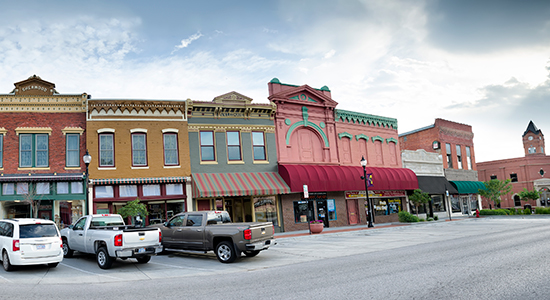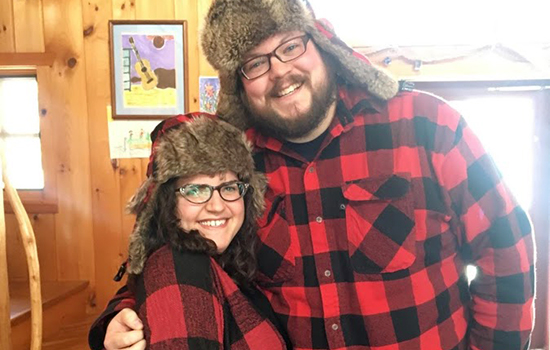
Aug. 17, 2016 – If you’re a lawyer pondering whether to “go north” and seek out a rural practice, Amanda Bergman has been there.
Bergman made the move to a rural practice in 2015, moving from a position with Lagmann, Inc., in Milwaukee. She started work in September at Wisconsin Judicare in Wausau.
The work in her new position in Wausau isn't all that different from her work in Milwaukee, where she focused on providing affordable family law representation to the indigent. “The low-income and indigent populations of Wisconsin face similar challenges in the rural areas as in the bustling cities,” Bergman said.
The difference is in the wider geographical region that her clients are from. “It has more of an impact on my interactions with clients than I anticipated,” Bergman said. Clients in urban areas use public transportation, something not available to her rural clients.
“In covering a rural area, I quickly found that I need to be more flexible in connecting with clients,” she said. She conducts more meetings over telephone and uses the mail system more than previously. It takes more effort to receive her clients’ paperwork. But there is a bonus: it allows more flexibility for both client and Bergman.
“I am able to work with clients regardless of their access to transportation or work schedule, which is especially significant for the rural areas of northern Wisconsin,” Bergman said.

Amanda Bergman and her husband celebrate their adopted northern roots.
Networking is Critical
Those seeking to transition to a rural practice should keep in mind that they will likely need to practice in multiple counties to have a sustainable client base, according to Bergman. And such a practice requires good ongoing relationships with local bar associations, county clerks, and judicial assistants in multiple counties, who can help you learn the local informal practice rules in those counties. “I have also found that the attorneys in the northern counties tend to be older and many have been practicing in those courts for 20 years or more which makes understanding those informal rules even more important,” Bergman said.
Participating in local bar associations, as well as her activities in State Bar sections and CLE programs help her keep in touch with other young lawyers, despite her distance from the major cities.
“It is very helpful to find a mentor of some sort to lessen the isolation and learn more about local, unwritten practices,” Bergman said. “Don’t just assume you’ll run into people out and about, so making an effort is important.”
What: The bus tour is a free opportunity for lawyers and 3L law students – and their spouses or significant others - to connect with local judges, attorneys, and community and business leaders and to learn more about life and practice in northern Wisconsin.
When: Friday and Saturday, Oct. 7-8, 2016
Where: The bus leaves from the State Bar Center in Madison, and goes to Rhinelander and Marinette. Riding the bus is not mandatory.
Cost: Applicants selected to participate in the tour will be required to provide a $30 seat deposit that will be refunded after participation in the tour. Riding on the bus is encouraged but not mandatory. The refundable deposit would still be required.
Deadline: Sign up by Sept. 9.
For more information and to apply: Visit the tour's website on WisBar.org.
Questions? Contact org kwenzel wisbar Kris Wenzel at (608) 250-6185.
Worth It
The move from Milwaukee to Wausau was a good one for her.
“I think the lifestyle is worth it. One bonus to practicing outside of the bigger cities is the chance to take a more active role in cases sooner than you might if you are a junior associate at a large firm,” she said. “That experience is a great thing no matter where the future takes you.”
Bergman encourages anyone considering a rural practice to sign up for the Greater Wisconsin Initiative Bus Tour, heading from Madison to Rhinelander and Marinette on Oct. 7-8.
“It never hurts to learn more about the legal communities outside of your comfort zone. Creating contacts or just gaining a better understanding of what happens outside of the geographical and practice area you know may be helpful down the road.”
Could You Use $2,000 in Your Pocket? New Law Foundation Awards Assist New Lawyers Who Help the Underserved – Apply by Sept. 12
The new Belle Case La Follette Awards from the Wisconsin Law Foundation provide $2,000 each to three recent law school graduates who represent underserved populations – people of modest means and those in rural areas with limited access to legal services.
Find out more in this issue of InsideTrack.
